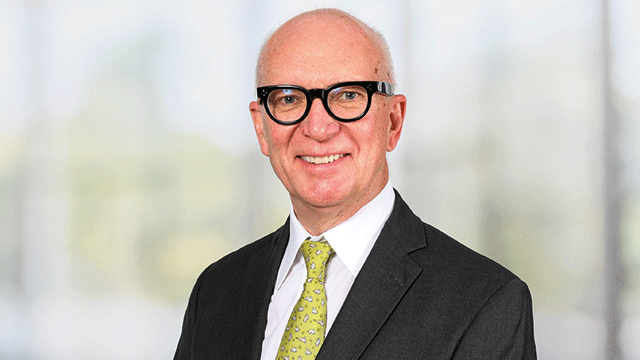Why Pandox is taking aim at the UK hotels market
When it comes to investment in the UK’s hotels market, the scales have tipped away from the capital lately. Regional portfolio investment deals have reached £2.2bn for the first nine months of this year, outpacing London.
In total, deals in the UK hotel sector reached nearly £5bn by the end of Q3 2018, up 27% year on year, with London accounting for around £2bn, according to Knight Frank research.
Stockholm-based Pandox is one of the most recent high-profile investors in the UK’s regions, having acquired Irish hotel chain Jurys Inn from Lone Star in December in an £800m joint acquisition with Israel’s Fattal Group.
When it comes to investment in the UK’s hotels market, the scales have tipped away from the capital lately. Regional portfolio investment deals have reached £2.2bn for the first nine months of this year, outpacing London.
In total, deals in the UK hotel sector reached nearly £5bn by the end of Q3 2018, up 27% year on year, with London accounting for around £2bn, according to Knight Frank research.
Stockholm-based Pandox is one of the most recent high-profile investors in the UK’s regions, having acquired Irish hotel chain Jurys Inn from Lone Star in December in an £800m joint acquisition with Israel’s Fattal Group.
“We are looking very actively at the possibility of growth in the UK,” says chief executive Anders Nissen. “When it comes to the two markets in the UK – in London and outside London – they are totally different. But I prefer the market out of London,” he says.
Nissen has led the business since it was founded in 1995, starting with 18 properties and three small hotel operations in Sweden.
The company, which is listed on the Nasdaq Stockholm exchange, now has 143 hotels with around 31,600 rooms in its portfolio across 15 countries. As at 30 June, Pandox’s portfolio had a total market value of SEK53.1bn (£4.5bn).
Its strategy is to buy and develop underperforming hotels, with a preference for turnover-based lease agreements with a different brand operator. Pandox also operates hotels itself, mainly through franchises.
Wagering on regional cities
For Nissen, the UK is attractive due to its domestic market and inbound tourism. He highlights demand in regional markets outside of the capital in particular, where he notes yields are more similar to those in Sweden. Diversifying into these regions, he argues, has brought balance to the portfolio.
Revenue per available room (RevPAR) dropped by 4% at Pandox’s London business during April-May this year, under the pressures of new hotel capacity in the market and lower international demand. This compares with 1% growth in its regional UK operations during the same period.
[caption id="attachment_948058" align="aligncenter" width="847"] Jurys Inn, Brighton[/caption]
While new capacity from increasing room supply is also expected to weigh on cities such as Manchester, Glasgow and Belfast, potentially reducing RevPAR growth in the short term, Nissen points to solid underlying demand as a buffer.
“London is very up and down but in the regional cities, business is stable and resilient with good activity, so for us it is a more attractive prospect.”
Nissen highlighted Glasgow, Cardiff, Dublin, Manchester and Sheffield as particularly appealing. Indeed, earlier this month, Pandox acquired the Radisson Blu in Glasgow for £39m from Azure Hotels.
Staying in the middle
The investor leans towards the dependability of mid-market assets, which he suggests offer a more stable investment outlook.
“Ordinary people are the biggest market. Take a mid-market hotel in Sheffield, where the core demographic is an English person who likes to get together with friends – no prestige, limousines or fancy restaurants. It is important to remember that trends come and go, but most [customers] are in the mid-market,” he asserts.
“There also is far less fluctuation in the [regional] market. Yields in big regional cities are similar, and yields in capital cities are similar. And at the moment there is more potential in regional cities than in the capitals. Many investors think the opposite.
“Most only like the big cities and low yields but we like the stability of regional cities. That’s why we liked the Jurys Inn portfolio.”
Repositioning Jurys Inn
Since acquiring Jurys Inn, Pandox is using its relatively new-found local expertise to steadily grow its UK presence.
As part of the deal, Pandox bought 20 Jurys Inn hotels, run by Fattal, as well as the property and operations of the Hilton Garden Inn London Heathrow hotel, which it runs itself.
It paid £680m for its piece of the deal, which saw Fattal buy rights to operate 16 other properties, owned by several unnamed companies, for £120m.
Fattal owns and manages hotels in Europe under the Leonardo brand. Altogether, it operates more than 190 hotels with more than 36,000 rooms, in 100-plus destinations.
Now, Pandox is in the process of reviewing each hotel and weighing up the amount of investment each may require. “We have started to look at these piece by piece in each city, [to determine] how the hotel is positioned,” says Nissen.
“Then, we will measure the hotels against their competitors to see if we are in a good position, or if there is reason to change anything – whether that involves increasing its bed or room count, or food and beverage offer – in cooperation with Fattal.”
He adds that looking ahead, there may be a noticeable uptick in investment in the portfolio to add more rooms in some markets in a year or two – but there is some way to go before it reaches this stage.
In the meantime, Nissen is also keeping an eye on the serviced apartments sector as it develops. He predicts there will be a segment of the market in “hybrid hotels” in the future, comprising a mix of flexible office spaces and aspects of hostels, apartments and hotels.
“It would be interesting for us to be in this space, but it is a different model that we need to understand first.”
To send feedback, e-mail pui-guan.man@egi.co.uk or tweet @PuiGuanM or @estatesgazette











